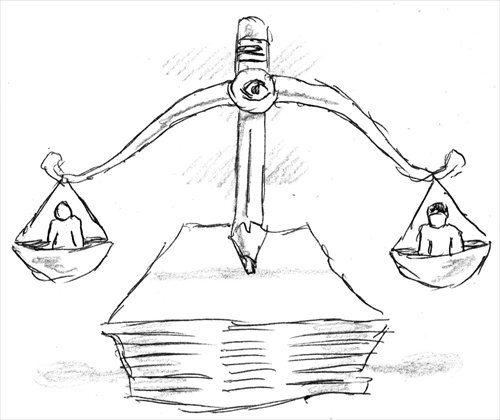A call to adjust affirmative action in China’s gaokao

Illustration: Peter C. Espina/GT
The annual gaokao ended on Wednesday. Over the next month, 9.4 million students will receive their scores, which for many will decide the future of their higher education. The national college entrance exams are the first life-changing event for many Chinese youngsters and their families.
For most kids coming from ordinary backgrounds or one-horse towns, the gaokao is their first and foremost chance to climb the ladder of social status.
For some in the countryside, the exam offers a last thread of hope for the future of their entire family.
That is why every year as the gaokao approaches, the public casts its doubts on the equity of the system. Authorities fine-tune the system annually by introducing minor or major reform measures in order to gain wider public approval. This year, some provinces, such as Shandong and Heilongjiang, have determined to gradually abolish the sensitive policy of awarding extra points to ethnic minority students.
The transformation indicates changes in attitude among policymakers toward both educational equity and ethnic minority affairs. For decades, the government has granted ethnic minorities many advantages. In the past, most ethnic minorities lived in remote and poverty-stricken border areas - situations that prompted preferential policies, such as additional points on the gaokao.
However, as population flow becomes less restricted, social mobility, once reinforced by political power, has since broken from the rigid social hierarchy of the past.
People from ethnic minorities do not necessarily belong to disadvantaged groups. Many were born and grew up in urban areas with a standard of living on par with the Han majority. It is unreasonable that they continue to enjoy the benefits of preferential policies. Affirmative action programs must be adjusted to local conditions, or they run the risk of reverse discrimination.
The readjustment indicated that authorities are starting to guarantee educational equity from multiple perspectives. Concrete measures need to keep up with the times and give relief to those in real need, be they ethnic minorities or the dominant Han. This is the meaning of a fair society.
Ethnicity should no longer be a determinant for preferential treatment in social undertakings, especially education. The previous pattern that favors ethnic minorities has triggered resentment among the majority in many developed regions. Some Han parents have even exploited ways to change their children's ethnicity status just for some extra leverage in the gaokao.
The readjustment should also raise a second thought about the impact of ethnicity in China's social, political and economic life. As civil society developed in China, traditional criteria based on factors such as career, social status, or ethnicity, led to trouble. The Chinese have paid unprecedented attention to the guarantee of civil rights, which has since evolved into making equal the pursuit of opportunity.
The new change should attract sufficient attention from authorities, who should reassess their approaches to social management and consider any possible side-effects. A rapidly changing society such as China demands it.
The author is a reporter with the Global Times. liuzhun@globaltimes.com.cn